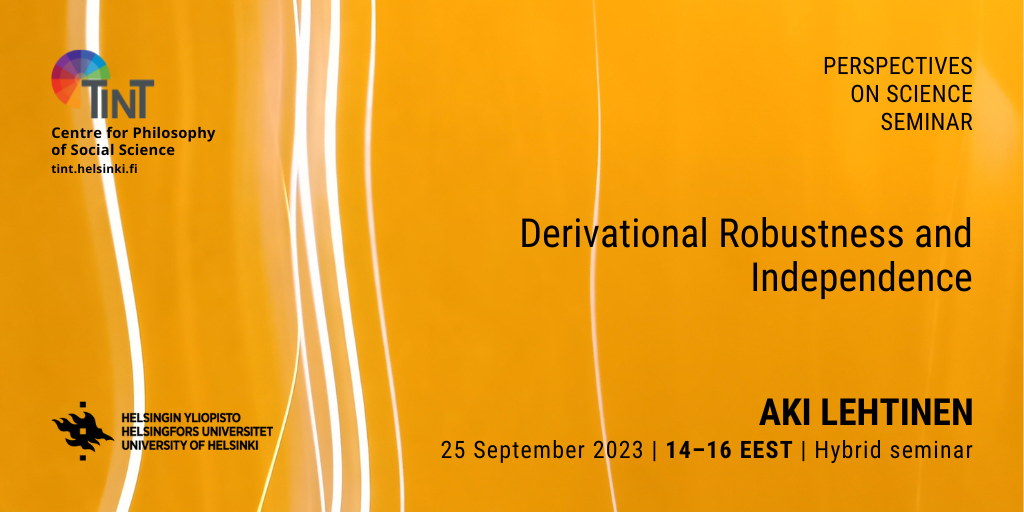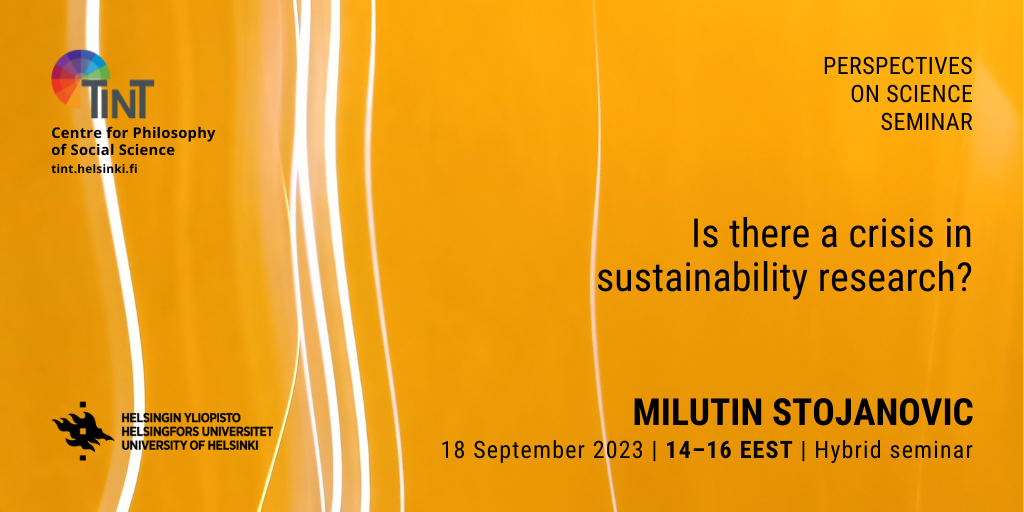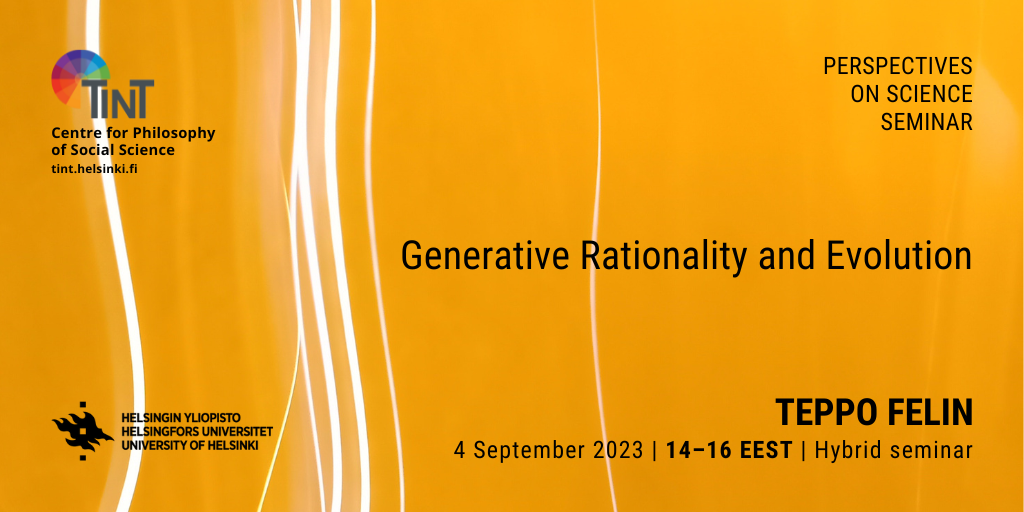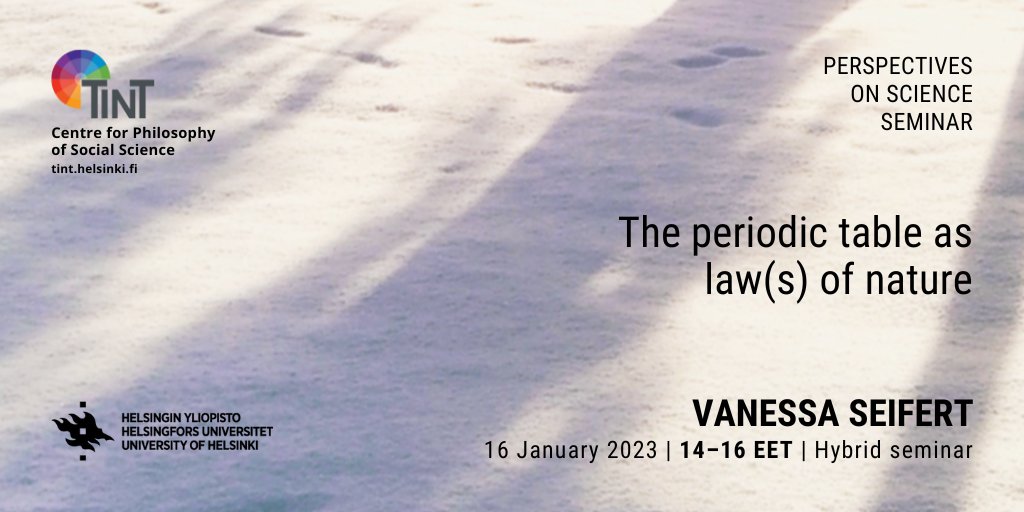
In the next Perspectives on Science seminar, Aki Lehtinen (Nankai University) will give a talk titled “Derivational Robustness and Independence“.
The seminar takes place in person at Metsätalo and online via Zoom from 14:15 to 15:45 on Monday the 25th of September 2023. To join the seminar, please contact jessica.north@helsinki.fi for the location or Zoom invitation.
Perspectives on Science is a weekly research seminar which brings together experts from science studies and philosophy of science. It is organized by TINT – Centre for Philosophy of Social Science at the University of Helsinki. More information about the seminar here.
Abstract:
This paper discusses independence conditions in the context of modelling. It is argued that variety of evidence in experiments and derivational robustness are fundamentally different. The former requires independence of sources of evidence, but the latter is better seen to demonstrate a relevant independence. In a recent criticism of Kuorikoski, Lehtinen and Marchionni’s (2010) analysis of derivational robustness, Margherita Harris (2021) argued that the independence condition they proposed is not credible. While this criticism is cogent, I argue that it is impossible to formulate any independence condition because incremental epistemic benefits from robustness require violating an independence condition. The failure to satisfy a relevant independence condition is best seen as a failure to show the robustness of every assumption in a model family. This illustrates the difference between an increment in confidence in the robust result, and a high absolute degree of confidence in a result: a high absolute degree of confidence in a result does require demonstrating the independence of every false assumption.
Author bio:
Aki Lehtinen is a Talent Professor of Philosophy at Nankai University, Tianjin, China. He has spent most of his academic career at University of Helsinki. In his early career he published papers on social choice and voting theory, rational and game choice theory. As a philosopher of science, he has written about the philosophy of modelling and simulation, confirmation, and philosophy of economics. His most recent interests lie in data, meta-analysis, scientific representation, generalisation, and robustness. See https://www.researchgate.net/profile/Aki-Lehtinen for most of his publications.


















